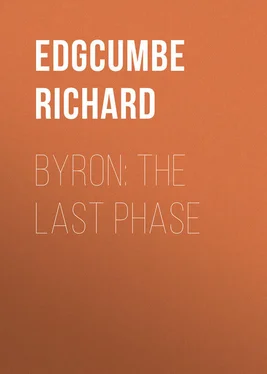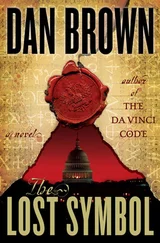Richard Edgcumbe - Byron - The Last Phase
Здесь есть возможность читать онлайн «Richard Edgcumbe - Byron - The Last Phase» — ознакомительный отрывок электронной книги совершенно бесплатно, а после прочтения отрывка купить полную версию. В некоторых случаях можно слушать аудио, скачать через торрент в формате fb2 и присутствует краткое содержание. Жанр: literature_19, Поэзия, foreign_antique, foreign_prose, foreign_poetry, Биографии и Мемуары, на английском языке. Описание произведения, (предисловие) а так же отзывы посетителей доступны на портале библиотеки ЛибКат.
- Название:Byron: The Last Phase
- Автор:
- Жанр:
- Год:неизвестен
- ISBN:нет данных
- Рейтинг книги:3 / 5. Голосов: 1
-
Избранное:Добавить в избранное
- Отзывы:
-
Ваша оценка:
- 60
- 1
- 2
- 3
- 4
- 5
Byron: The Last Phase: краткое содержание, описание и аннотация
Предлагаем к чтению аннотацию, описание, краткое содержание или предисловие (зависит от того, что написал сам автор книги «Byron: The Last Phase»). Если вы не нашли необходимую информацию о книге — напишите в комментариях, мы постараемся отыскать её.
Byron: The Last Phase — читать онлайн ознакомительный отрывок
Ниже представлен текст книги, разбитый по страницам. Система сохранения места последней прочитанной страницы, позволяет с удобством читать онлайн бесплатно книгу «Byron: The Last Phase», без необходимости каждый раз заново искать на чём Вы остановились. Поставьте закладку, и сможете в любой момент перейти на страницу, на которой закончили чтение.
Интервал:
Закладка:
And then, rising from the table, he left the room, and presently returned with a magazine, from which he read ‘The Burial of Sir John Moore’ with the deepest feeling. It was at that time generally believed that Byron was the author of these admirable stanzas; and Medwin says: ‘I am corroborated in this opinion lately (1824) by a lady, whose brother received them many years ago from Lord Byron, in his lordship’s own handwriting.’
These festive gatherings were not pleasing to Shelley, who, with his abstemious tastes and modest, retiring disposition, disliked the glare and surfeit of it all. But Shelley’s unselfish nature overcame his antipathy, and for the sake of others he sacrificed himself. In writing to his friend Horace Smith, he marks his repugnance for these dinners, ‘when my nerves are generally shaken to pieces by sitting up, contemplating the rest of the company making themselves vats of claret, etc., till three o’clock in the morning.’ Nevertheless, companionship with Byron seemed for a time, to Shelley and Mary, to be like ‘companionship with a demiurge who could create rolling worlds at pleasure in the void of space.’ Shelley’s admiration for the poetic achievements of Byron is well known:
‘Space wondered less at the swift and fair creations of God when he grew weary of vacancy, than I at the late works of this spirit of an angel in the mortal paradise of a decaying body. So I think – let the world envy, while it admires as it may.’ 2 2 Letter to Mr. Gisborne, January 12, 1822. Professor Dowden’s ‘Life of Shelley,’ vol. ii., p. 447.
And again: ‘What think you of Lord Byron’s last volume? In my opinion it contains finer poetry than has appeared in England since the publication of “Paradise Regained.” “Cain” is apocalyptic; it is a revelation not before communicated to man.’
Byron recognized Shelley’s frankness, courage, and hardihood of opinion, but was not influenced by him so much as was at that time supposed by his friends in England. In writing to Horace Smith (April 11, 1822), Shelley begs him to assure Moore that he had not the smallest influence over Byron’s religious opinions.
‘If I had, I certainly should employ it to eradicate from his great mind the delusions of Christianity, which, in spite of his reason, seem perpetually to recur, and to lay in ambush for the hours of sickness and distress. “Cain” was conceived many years ago, and begun before I saw him last year at Ravenna. How happy should I not be to attribute to myself, however indirectly, any participation in that immortal work!’
‘Byron,’ says Professor Dowden in his ‘Life of Shelley,’ ‘on his own part protested that his dramatis personæ uttered their own opinions and sentiments, not his.’
Byron undoubtedly had a deep-seated reverence for religion, and had a strong leaning towards the Roman Catholic doctrines. Writing to Moore (March 4, 1822), he says:
‘I am no enemy to religion, but the contrary. As a proof, I am educating my natural daughter a strict Catholic in a convent of Romagna; for I think people can never have enough of religion, if they are to have any… As to poor Shelley, who is another bug-bear to you and the world, he is, to my knowledge, the least selfish and the mildest of men – a man who has made more sacrifices of his fortune and feelings for others than any I ever heard of. With his speculative opinions I have nothing in common, nor desire to have.’
Countess Guiccioli, a woman of no ordinary intuitive perceptions, with ample opportunities for judging the characters of both Shelley and Byron, makes a clear statement on this point:
‘In Shelley’s heart the dominant wish was to see society entirely reorganized. The sight of human miseries and infirmities distressed him to the greatest degree; but, too modest himself to believe that he was called upon to take the initiative, and inaugurate a new era of good government and fresh laws for the benefit of humanity, he would have been pleased to see such a genius as Byron take the initiative in this undertaking. Shelley therefore did his best to influence Byron. But the latter hated discussions. He could not bear entering into philosophical speculation at times when his soul craved the consolations of friendship, and his mind a little rest. He was quite insensible to reasonings, which often appear sublime because they are clothed in words incomprehensible to those who have not sought to understand their meaning. But he made an exception in favour of Shelley. He knew that he could not shake his faith in a doctrine founded upon illusions, by his incredulity; but he listened to him with pleasure, not only on account of Shelley’s good faith and sincerity, but also because he argued upon false data, with such talent and originality, that he was both interested and amused. Lord Byron had examined every form of philosophy by the light of common sense, and by the instinct of his genius. Pantheism in particular was odious to him. He drew no distinction between absolute Pantheism which mixes up that which is infinite with that which is finite, and that form of Pantheism which struggles in vain to keep clear of Atheism. Shelley’s views, clothed in a veil of spiritualism, were the most likely to interest Byron, but they did not fix him. Byron could never consent to lose his individuality, deny his own freedom of will, or abandon the hope of a future existence. As a matter of fact, Byron attributed all Shelley’s views to the aberrations of a mind which is happier when it dreams than when it denies.’
‘Shelley appears to me to be mad with his metaphysics,’ said Byron on one occasion to Count Gamba. ‘What trash in all these systems! say what they will, mystery for mystery, I still find that of the Creation the most reasonable of any.’
Thus it will be seen that the opinions of Lord Byron on matters of religion were far more catholic than those of his friend Shelley, who could not have influenced Byron in the manner generally supposed. That a change came over the spirit of Byron’s poetry after meeting Shelley on the Lake of Geneva is unquestionable; but the surface of the waters may be roughened by a breeze without disturbing the depths below. Like all true poets, Byron was highly susceptible to passing influences, and there can be no doubt that Shelley impressed him deeply.
The evident sincerity in the life and doctrines of Shelley – his unworldliness; the manner in which he had been treated by the world, and even by his own family, aroused the sympathy of Byron, at a time when he himself was for a different cause smarting under somewhat similar treatment. Although Byron and Shelley differed fundamentally on some subjects they concurred in the principles of others. Byron had no fixed religious opinions – that was the string upon which Shelley played – but there is a wide difference between doubt and denial. Gamba, after Byron’s death, wrote thus to Dr. Kennedy:
‘My belief is that Byron’s religious opinions were not fixed. I mean that he was not more inclined towards one than towards another of the Christian sects; but that his feelings were thoroughly religious, and that he entertained the highest respect for the doctrines of Christ, which he considered to be the source of virtue and of goodness. As for the incomprehensible mysteries of religion, his mind floated in doubts which he wished most earnestly to dispel, as they oppressed him, and that is why he never avoided a conversation on the subject, as you are well aware. I have often had an opportunity of observing him at times when the soul involuntarily expresses its most sincere convictions; in the midst of dangers, both at sea and on land; in the quiet contemplation of a calm and beautiful night, in the deepest solitude. On these occasions I remarked that Lord Byron’s thoughts were always imbued with a religious sentiment. The first time I ever had a conversation with him on that subject was at Ravenna, my native place, a little more than four years ago. We were riding together in the Pineta on a beautiful spring day. “How,” said Byron, “when we raise our eyes to heaven, or direct them to the earth, can we doubt of the existence of God? or how, turning them inwards, can we doubt that there is something within us, more noble and more durable than the clay of which we are formed? Those who do not hear, or are unwilling to listen to these feelings, must necessarily be of a vile nature.” I answered him with all those reasons which the superficial philosophy of Helvetius, his disciples and his masters, have taught. Byron replied with very strong arguments and profound eloquence, and I perceived that obstinate contradiction on this subject, which forced him to reason upon it, gave him pain. This incident made a deep impression upon me… Last year, at Genoa, when we were preparing for our journey to Greece, Byron used to converse with me alone for two or three hours every evening, seated on the terrace of his residence at Albaro in the fine evenings of spring, whence there opened a magnificent view of the superb city and the adjoining sea. Our conversation turned almost always on Greece, for which we were so soon to depart, or on religious subjects. In various ways I heard him confirm the sentiments which I have already mentioned to you. “Why, then,” said I to him, “have you earned for yourself the name of impious, and enemy of all religious belief, from your writings?” He answered, “They are not understood, and are wrongly interpreted by the malevolent. My object is only to combat hypocrisy, which I abhor in everything, and particularly in religion, and which now unfortunately appears to me to be prevalent, and for this alone do those to whom you allude wish to render me odious, and make me out worse than I am.’”
Читать дальшеИнтервал:
Закладка:
Похожие книги на «Byron: The Last Phase»
Представляем Вашему вниманию похожие книги на «Byron: The Last Phase» списком для выбора. Мы отобрали схожую по названию и смыслу литературу в надежде предоставить читателям больше вариантов отыскать новые, интересные, ещё непрочитанные произведения.
Обсуждение, отзывы о книге «Byron: The Last Phase» и просто собственные мнения читателей. Оставьте ваши комментарии, напишите, что Вы думаете о произведении, его смысле или главных героях. Укажите что конкретно понравилось, а что нет, и почему Вы так считаете.












